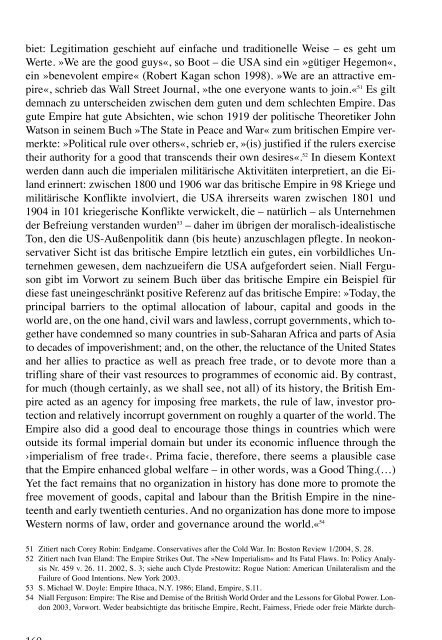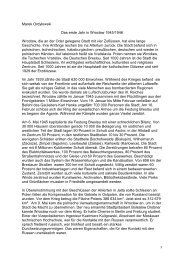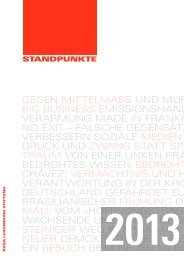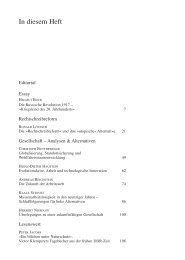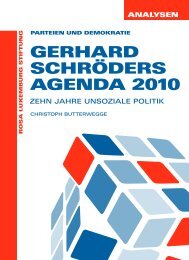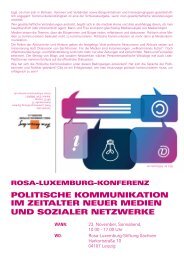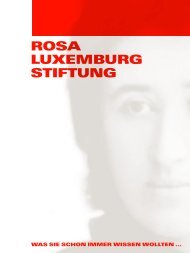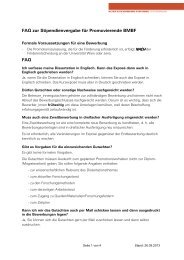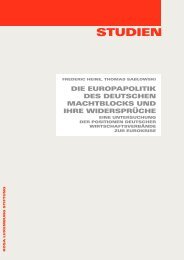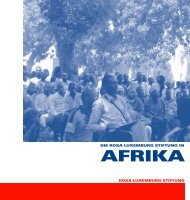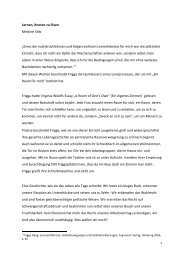Schöne neue Demokratie - Rosa-Luxemburg-Stiftung
Schöne neue Demokratie - Rosa-Luxemburg-Stiftung
Schöne neue Demokratie - Rosa-Luxemburg-Stiftung
Sie wollen auch ein ePaper? Erhöhen Sie die Reichweite Ihrer Titel.
YUMPU macht aus Druck-PDFs automatisch weboptimierte ePaper, die Google liebt.
iet: Legitimation geschieht auf einfache und traditionelle Weise – es geht um<br />
Werte. »We are the good guys«, so Boot – die USA sind ein »gütiger Hegemon«,<br />
ein »benevolent empire« (Robert Kagan schon 1998). »We are an attractive empire«,<br />
schrieb das Wall Street Journal, »the one everyone wants to join.« 51 Es gilt<br />
demnach zu unterscheiden zwischen dem guten und dem schlechten Empire. Das<br />
gute Empire hat gute Absichten, wie schon 1919 der politische Theoretiker John<br />
Watson in seinem Buch »The State in Peace and War« zum britischen Empire vermerkte:<br />
»Political rule over others«, schrieb er, »(is) justified if the rulers exercise<br />
their authority for a good that transcends their own desires«. 52 In diesem Kontext<br />
werden dann auch die imperialen militärische Aktivitäten interpretiert, an die Eiland<br />
erinnert: zwischen 1800 und 1906 war das britische Empire in 98 Kriege und<br />
militärische Konflikte involviert, die USA ihrerseits waren zwischen 1801 und<br />
1904 in 101 kriegerische Konflikte verwickelt, die – natürlich – als Unternehmen<br />
der Befreiung verstanden wurden 53 – daher im übrigen der moralisch-idealistische<br />
Ton, den die US-Außenpolitik dann (bis heute) anzuschlagen pflegte. In neokonservativer<br />
Sicht ist das britische Empire letztlich ein gutes, ein vorbildliches Unternehmen<br />
gewesen, dem nachzueifern die USA aufgefordert seien. Niall Ferguson<br />
gibt im Vorwort zu seinem Buch über das britische Empire ein Beispiel für<br />
diese fast uneingeschränkt positive Referenz auf das britische Empire: »Today, the<br />
principal barriers to the optimal allocation of labour, capital and goods in the<br />
world are, on the one hand, civil wars and lawless, corrupt governments, which together<br />
have condemned so many countries in sub-Saharan Africa and parts of Asia<br />
to decades of impoverishment; and, on the other, the reluctance of the United States<br />
and her allies to practice as well as preach free trade, or to devote more than a<br />
trifling share of their vast resources to programmes of economic aid. By contrast,<br />
for much (though certainly, as we shall see, not all) of its history, the British Empire<br />
acted as an agency for imposing free markets, the rule of law, investor protection<br />
and relatively incorrupt government on roughly a quarter of the world. The<br />
Empire also did a good deal to encourage those things in countries which were<br />
outside its formal imperial domain but under its economic influence through the<br />
›imperialism of free trade‹. Prima facie, therefore, there seems a plausible case<br />
that the Empire enhanced global welfare – in other words, was a Good Thing.(…)<br />
Yet the fact remains that no organization in history has done more to promote the<br />
free movement of goods, capital and labour than the British Empire in the nineteenth<br />
and early twentieth centuries. And no organization has done more to impose<br />
Western norms of law, order and governance around the world.« 54<br />
51 Zitiert nach Corey Robin: Endgame. Conservatives after the Cold War. In: Boston Review 1/2004, S. 28.<br />
52 Zitiert nach Ivan Eland: The Empire Strikes Out. The »New Imperialism« and Its Fatal Flaws. In: Policy Analysis<br />
Nr. 459 v. 26. 11. 2002, S. 3; siehe auch Clyde Prestowitz: Rogue Nation: American Unilateralism and the<br />
Failure of Good Intentions. New York 2003.<br />
53 S. Michael W. Doyle: Empire Ithaca, N.Y. 1986; Eland, Empire, S.11.<br />
54 Niall Ferguson: Empire: The Rise and Demise of the British World Order and the Lessons for Global Power. London<br />
2003, Vorwort. Weder beabsichtigte das britische Empire, Recht, Fairness, Friede oder freie Märkte durch-<br />
160


